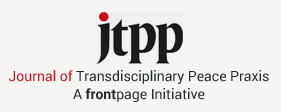Description
Online Buying Price: £ 13.95; INR 395; $ 18.95
In commemoration of Rabindranath Tagore’s (1861-1941) 150th birth anniversary, this new collection of English translation of his selected short stories opens up the possibility of an English-reading global audience discovering a new contemporary relevance in Tagore’s creations more than a century after they were penned in colonial India.
Introducing Tagore’s short stories afresh to a generation intrigued by the contemporary interface of the global and the local is significant, as these stories are marked by a fascinating dialectic of historical contexts, with all their cultural particularity, on the one hand, and Tagore’s vision of universal humanity, on the other.
At a time when the market and the ideology of consumerism is propagating an ethic based on individual needs, Tagore’s short stories permeated with values based on care, attachment and empathy strike a deep chord, precisely because this value orientation is fast eroding all over the globalized world.
Tagore’s stories, representing a multiplicity of voices, have a timeless ethical relevance in terms of their commitment to social and cultural plurality. Moving representations of the subjectivity of variously marginalized persons signify Tagore’s attachment to the cause of social justice that he equated with his love for a God, whom he saw as the profundity of life personified.
Malobika Chaudhuri, a creative writer, earned acclaim as a translator when Parineeta by Saratchandra Chattopadhyay (Penguin, 2005) featured on the best seller list for quite a long time. Malobika’s other notable translations are Scarlet Dusk: Stories by Saradindu Bandopadhyaya (Rupa, 2003), Palli Samaj by Saratchandra Chattopadhyay (Penguin, 2005), The Last Time I Saw Tibet by Bimal Dey (Penguin, 2007); Malobika’s forthcoming list includes: Arrakhaniya and Pather Dabi by Saratchandra Chattopadhyay and Indira by Bankimchandra Chattopadhyay.
Patrick Colm Hogan is a Professor in the Department of English, the Programme in Comparative Literature and Cultural Studies, and the India Studies Programme at the University of Connecticut, Storrs, USA. Patrick’s research treats World Literature with particular reference to South Asian Culture. Some of his recent publications include: Cognitive Science, Literature, and the Arts: A Guide for Humanists (Routledge, 2003), The Mind and its Stories: Narrative Universals and Human Emotion (Cambridge University Press, 2003), Understanding Indian Movies (University of Texas Press, 2008), and The Cambridge Encyclopaedia of the Language Sciences (Cambridge University Press, 2010).
Contents
Atithi (The Visitor)
Chhuti (The Holiday)
Dena Paona (Debts and Dues)
Ek Ratri (One Night)
Kabuliwala (The Man from Kabul)
Kankal (The Skeleton)
Khokababur Pratyabartan (The Return of Khokababu)
Khsudita Pashan (The Hungry Stones)
Monihara (Loss of Bejewelled Glory)
Noshto Neer (Broken Nest)
Samapti (The Ending)
Streer Patra (The Wife’s Epistle)





